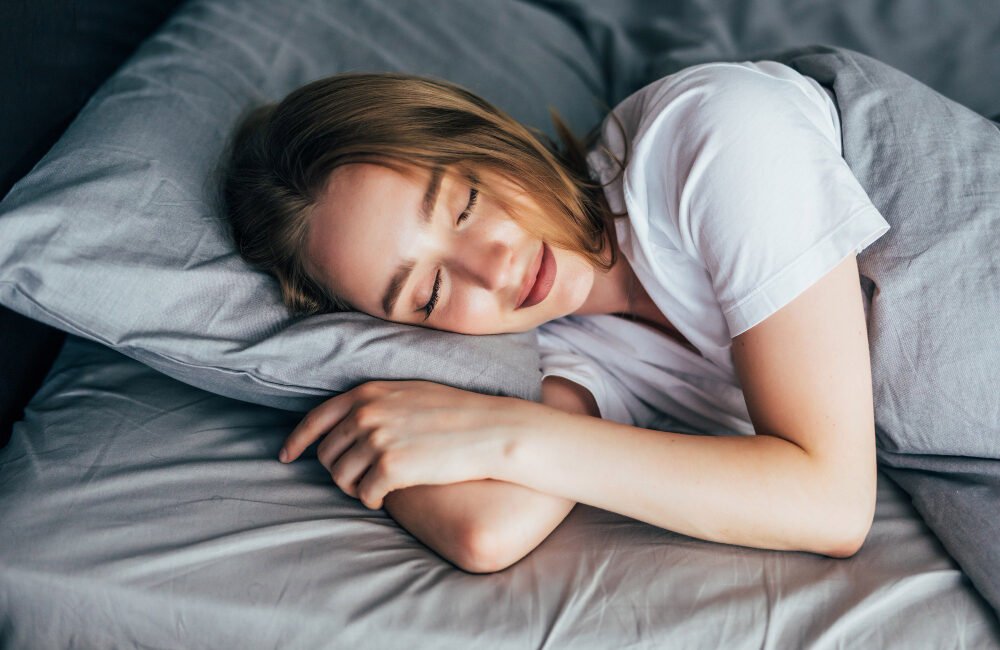
We all know exercise is great for your body. It makes your heart strong, builds muscles, and helps you stay fit. But did you know sleep is just as important as exercise—maybe even more?
Many people focus on working out and eating healthy but forget about getting enough sleep. In truth, your body needs sleep to recover, grow, and stay healthy. Without it, even the best workout plan won’t give you the results you want.
In this blog, we’ll break down why sleep matters just as much as exercise—and how both together can help you live a healthy, happy life.
🧠 What Happens When You Sleep?
When you sleep, your body does more than just rest. It’s working behind the scenes to:
Repair muscles
Balance hormones
Strengthen memory
Support immune function
Control appetite and weight
So while you may feel like you’re “doing nothing,” your body is healing and recharging.
🛏️ Sleep vs. Exercise: Which One Comes First?
This may surprise you, but you can’t make up for poor sleep by exercising more.
Sleep and exercise work hand-in-hand. But if you had to pick just one, sleep is the foundation. Without enough sleep:
Your body can’t recover from workouts
Your muscles won’t grow properly
You’ll feel tired, cranky, and unmotivated
You’re more likely to skip your workout altogether
So before you set your morning alarm for a 5 a.m. gym session, ask yourself: Did I sleep at least 7–8 hours?
💪 7 Ways Sleep Helps with Fitness and Health
1. 🛠️ Helps Muscle Recovery
When you work out, you create tiny tears in your muscles. During deep sleep, your body releases growth hormone, which repairs and rebuilds those muscles.
Without enough sleep:
Muscle recovery slows down
You may feel sore for longer
You risk injury if you keep training without rest
2. 🧃 Balances Hormones
Sleep keeps your hormones balanced, especially the ones that control hunger, stress, and growth.
Lack of sleep raises cortisol (stress hormone) and ghrelin (hunger hormone). That means:
You feel more hungry
You crave sugar and junk food
Your body stores more fat
Even if you’re exercising daily, these hormone imbalances can cancel out your progress.
3. 🧠 Boosts Focus and Motivation
Tired brains don’t make great choices. Sleep affects:
Your decision-making
Focus during workouts
Motivation to exercise
Ever skipped a workout just because you were too tired? That’s your brain running low on sleep. With proper rest, you wake up energized and ready to move.
4. 🏃♀️ Improves Performance
Sleep helps improve:
Reaction time
Endurance
Strength
Coordination
Whether you’re a student, a busy professional, or an athlete, sleep makes you perform better—in the gym and in life.
5. 📉 Helps with Weight Control
Lack of sleep makes it harder to lose weight. That’s because:
You crave unhealthy food
You burn fewer calories at rest
Your metabolism slows down
People who sleep well tend to burn fat faster, have better energy, and make healthier food choices.
6. 😌 Reduces Stress
Stress makes your body tense, raises your blood pressure, and weakens your immune system.
Quality sleep:
Calms your nerves
Lowers stress hormones
Boosts mood and confidence
It’s the best natural way to feel better—no pills or caffeine needed.
7. 🧬 Strengthens the Immune System
Sleep helps your body fight off illness. If you’re not sleeping well:
You’re more likely to get sick
Recovery from illness takes longer
Your body feels tired and weak
Pairing sleep with exercise makes your immune system strong and ready to handle anything.
🔁 How Exercise Improves Sleep
Here’s the cool part—exercise actually helps you sleep better, too!
People who exercise:
Fall asleep faster
Sleep more deeply
Wake up less during the night
Just avoid intense workouts too close to bedtime, or your body may be too pumped up to sleep.
Ideal times for exercise:
Morning or afternoon
At least 2–3 hours before bed
Even 30 minutes of walking can improve sleep quality.
🕒 How Much Sleep Do You Really Need?
For adults, 7 to 9 hours per night is ideal.
Teens and children need even more:
Teens (14–17 years): 8–10 hours
Kids (6–13 years): 9–11 hours
Preschoolers (3–5 years): 10–13 hours
The quality of sleep matters too. You want deep, uninterrupted rest.
🛌 Tips to Improve Sleep Naturally
Here are easy ways to build a healthy sleep routine:
1. Set a Sleep Schedule
Go to bed and wake up at the same time—even on weekends.
2. Limit Screen Time Before Bed
Avoid phones, TVs, and laptops at least 30 minutes before sleeping.
3. Create a Calm Bedroom
Keep your room dark, quiet, and cool. Use blackout curtains or white noise if needed.
4. Avoid Heavy Meals and Caffeine Late
Don’t eat big meals or drink coffee close to bedtime.
5. Relax Before Bed
Try reading, meditation, or deep breathing to calm your mind.
Building these habits helps your body learn when it’s time to sleep.
📌 Sleep and Exercise: A Perfect Match
Imagine your health as a puzzle. Exercise, healthy food, and sleep are the three big pieces.
You need all three for the full picture.
Skipping sleep is like going to the gym without eating. You can do it—but it won’t feel good, and it won’t help you long-term.
When you sleep well and stay active, your body rewards you with:
More energy
Better mood
Stronger muscles
Sharper thinking
Fewer cravings
A healthier heart
It’s not about doing one or the other. It’s about doing both, in balance.
💡 Final Thoughts
So, why is sleep just as important as exercise? Because it’s the time your body needs to recover, grow, and stay balanced.
Even if you’re crushing it at the gym or running every morning, you won’t see true results without proper sleep.
Want to feel stronger, think clearer, and be your best self every day?
Move your body and honor your sleep. That’s the winning combo.

